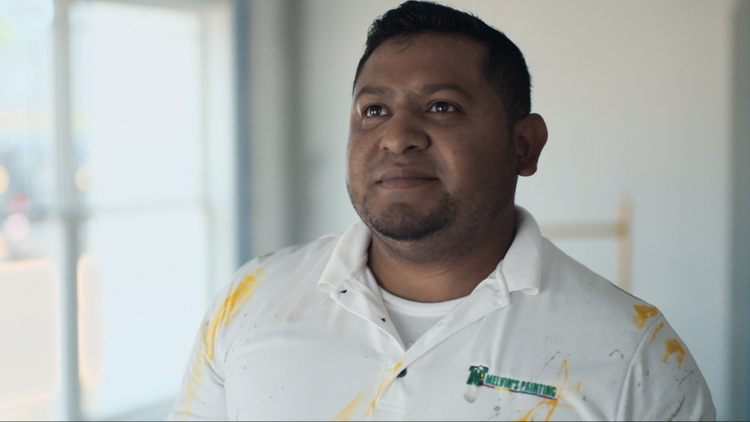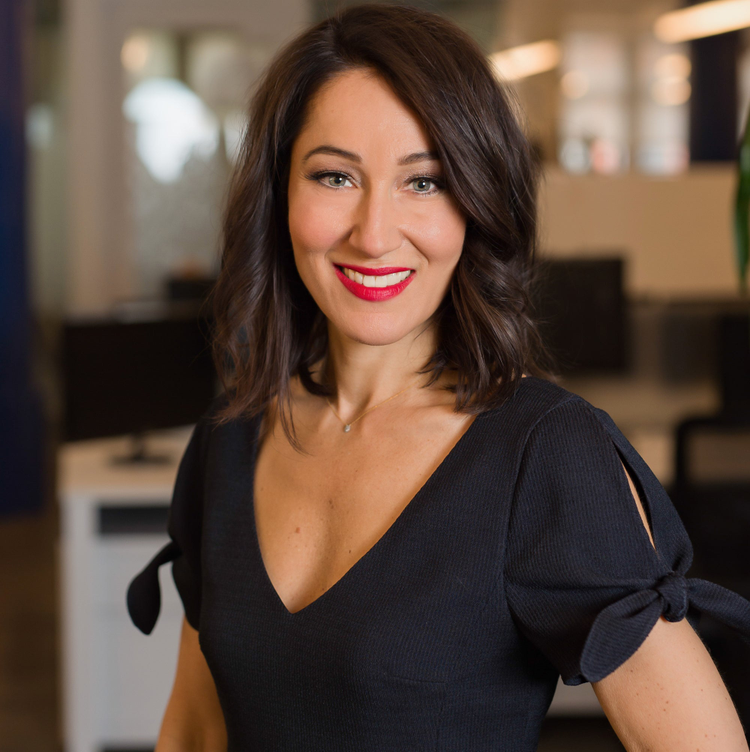Northwestern Mutual: Making financial planning more relatable, relevant and accessible

As Northwestern Mutual’s CMO, Lee Hurley is working to reframe consumer perception of financial planning.
According to Hurley, financial services is a category that puts up strong barriers. People think that it’s complex, confusing, and slow seven in 10 of us put off making major financial decisions because of that, she told the Adobe Blog editorial team, in an exclusive interview.
Hurley believes that the key to shifting perception around financial services is by focusing on breaking down these barriers. At Northwestern Mutual, that has meant shifting how the brand comes to life.

“We are speaking to consumers like humans instead of leaning on what feels like marketing and jargon. It's about having an honest conversation, meeting them where they are and showing that we understand them at every stage.”
Lee Hurley, chief marketing officer, Northwestern Mutual
Humanizing financial services amid COVID-19
The need to be more human and empathetic towards customers really took center stage during the COVID-19 pandemic. Through ongoing social listening, Northwestern Mutual was tracking trends and shifts during the pandemic, what people were saying online, and what their financial concerns were. This drove much of the company’s marketing strategy, which included a mix of enablement and inspirational content across channels. Examples include staying on track for retirement during the pandemic, managing your money tuition and home schooling, as well as pivoting a small business through uncertainty.
“We wanted people to know we are here to support and help them,” Hurley said. “COVID was a trigger: What was a health crisis became a financial crisis, and so we transformed our website, as well as our social strategy to offer the immediate support people were seeking.”
The company also used search data to understand key questions that people had, and then filmed advisors responding to those questions. “We were providing our market commentary to help people understand what was happening during a turbulent time,” she said. “We knew that people were also living a new normal, and our content was addressing how to manage this new normal.”
According to Hurley, nonbrand terms like “life insurance” were up significantly during COVID, so Northwestern Mutual increased its advertising bids and presence on those terms, specifically. Hurley says she and her team also knew that there were various need states that people were going through. For example, many people were experiencing a loss of income. Northwestern Mutual focused its content around what people were managing through with all the changes happening as a result of the pandemic.
New normal, new brand campaign
Using data to understand consumer sentiment uncovered many insights around what people were struggling with most as a result of the pandemic. Northwestern partnered closely with its advisors to understand what their experiences and conversation were like with clients.
“We saw this opportunity to drive unprecedented relevance by showcasing how our advisors and financial planning can really help people overcome the challenges that they were experiencing through COVID,” Hurley said. “The pandemic was driving such deep stress and anxiety across the country. Many people don’t understand that financial planning is accessible to them, so we wanted to show that it actually is – and it can make such a significant difference.”
And so, Northwestern Mutual decided to show people just how accessible financial planning is by telling real stories of clients during the pandemic via three ad spots.
These commercials are part of a 360-campaign that comes to life through targeted programming and partnerships, including a sponsorship with The Skimm to feature advice from Northwestern Mutual advisors. To date, the three spots have seen well over 5 million views on YouTube and have aired during Sunday Night Football and the US Open.
Digital maturity is driving business resilience at Northwestern Mutual
As a company, Northwestern Mutual’s business has been uninterrupted during the pandemic because of its early focus (pre-pandemic) on digital transformation, both internally – in terms of how its people work – and externally in how the organization services its clients.
“We have multiple campuses, two in Wisconsin and one in New York, so we work virtually often,” Hurley says. “As a result, we were able to transition seamlessly pretty much overnight in how we work and how we communicate with one another on a daily basis.”
From a customer standpoint the company already had in place an end-to-end lead generation process, and data and analytics when the pandemic hit. “We were able to pivot our messaging and marketing quickly, based on customer needs,” Hurley said.
Hurley added that she also credits success to the relationship building between marketing and the rest of the organization: IT, data science, digital product teams, and experience teams.
“Marketing must be integrated with the rest of the company in a very seamless way, especially now when you’re really focusing on priorities, what’s most important, what’s going to make the biggest impact — you need to be in lockstep together. The biggest challenge facing every single organization today is prioritization, so if everybody is very clear on the strategy and you’re aligning your teams and you’re planning together, that’s the most critical piece of the pie.”
The next six to 12 months
Hurley says she and her team will continue to focus on driving relevance and focusing on key areas throughout the customer financial journey. She also added that enabling her teams to make decisions on the right set of data is also top of mind for her in the coming months.
Hurley and her teams use that data to build out a digital experience that is unmatched, helping customers through personalization engines that give them the right information and the right support at the right time based on their needs.
“Financial planning can feel daunting and people think of it as something needed for retirement or the distant future,” said Hurley. “Through our marketing, we’re showing people that our version of financial planning helps you achieve your goals both now and in the future, all while making the most of every single day.”